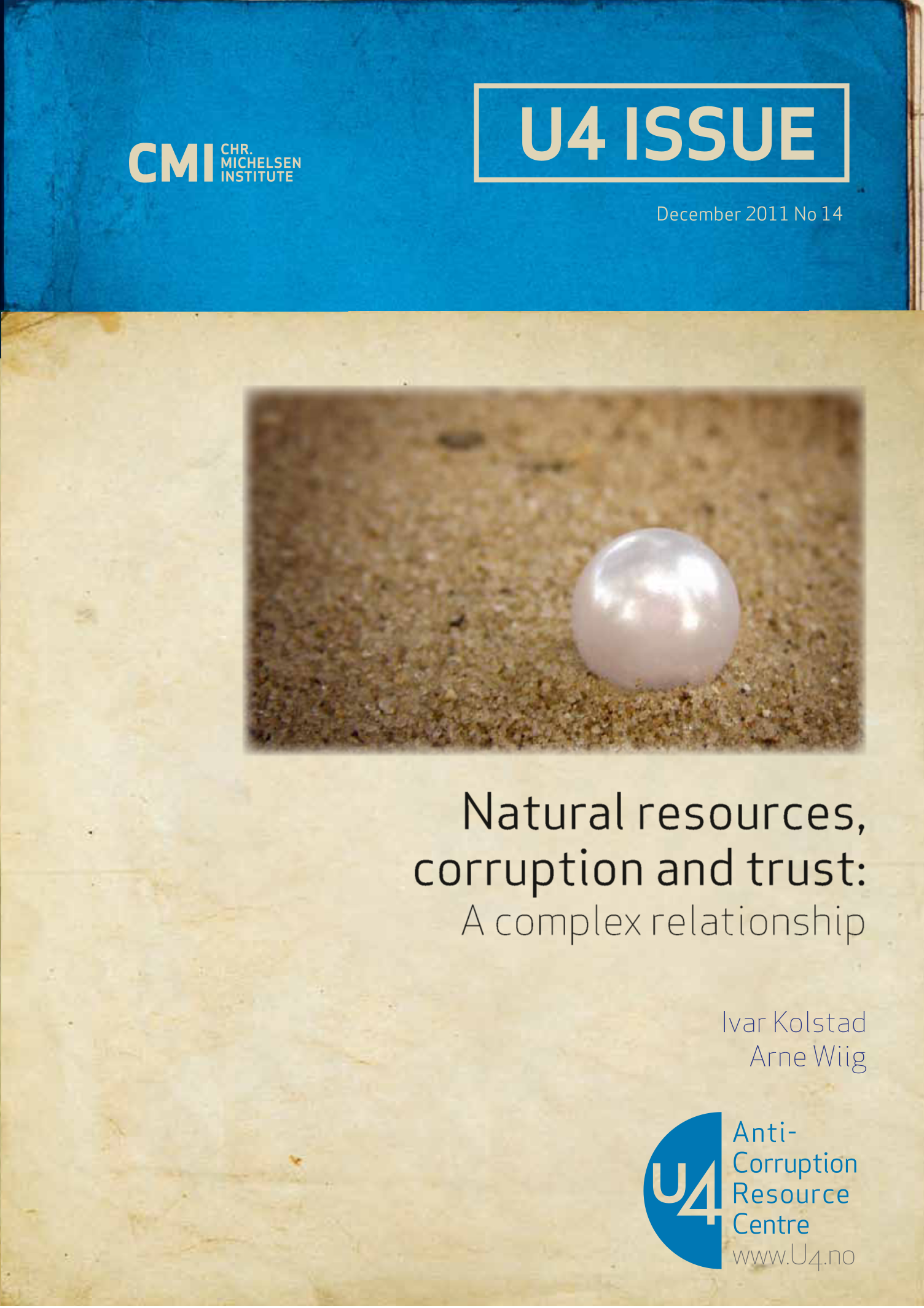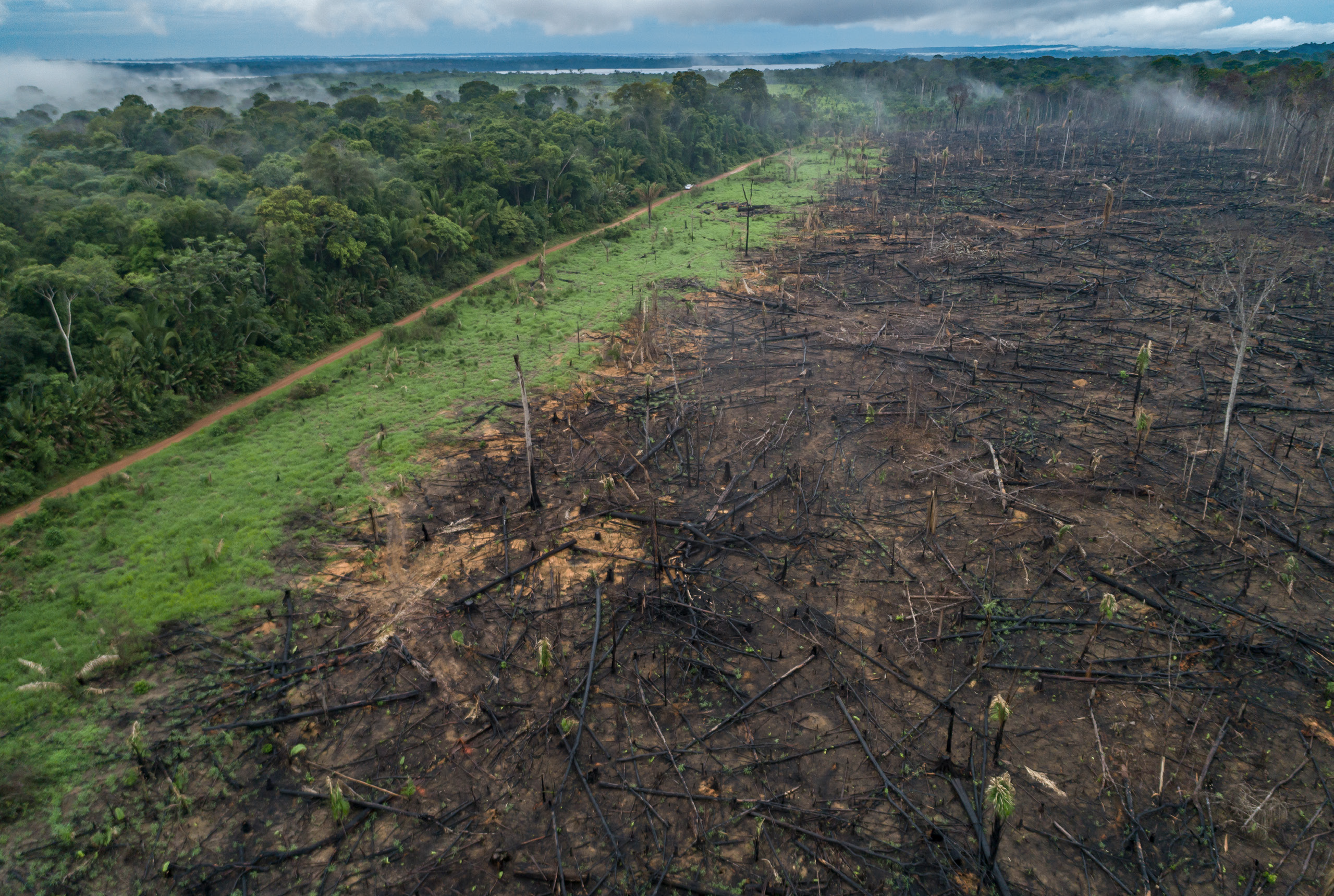U4 Issue
Natural resources, corruption and trust: A complex relationship
Do natural resources reduce social trust? And if so, do natural resources have a direct effect on trust, or is their effect indirect through variables such as corruption? This issue paper reviews the literature on natural resources and on trust. The existing theoretical and empirical literature suggests that natural resources can reduce trust through several indirect mechanisms. Notably, studies show that natural resources lead to institutional degradation, corruption, inequality, and civil war, all of which have been associated with reduced trust. The paper tests empirically whether there is a direct effect of natural resources on trust (The Pearl Hypothesis), using cross-country data. The results indicate that no such direct effect exists, suggesting that any effect of resources on trust runs through intermediate variables such as institutions, corruption, inequality, and civil war. Importantly, however, the relationship between corruption and trust turns out to be non-linear, indicating that the effect of natural resources on trust depends on the initial corruption level of a country.

Cite this publication
Wiig, A.; Kolstad, I. (2011) Natural resources, corruption and trust: A complex relationship. Bergen: Chr. Michelsen Institute (U4 Issue 2011:14) 25 p.
Disclaimer
All views in this text are the author(s)’, and may differ from the U4 partner agencies’ policies.
This work is licenced under a Creative Commons Attribution-NonCommercial-NoDerivatives 4.0 International licence (CC BY-NC-ND 4.0)


